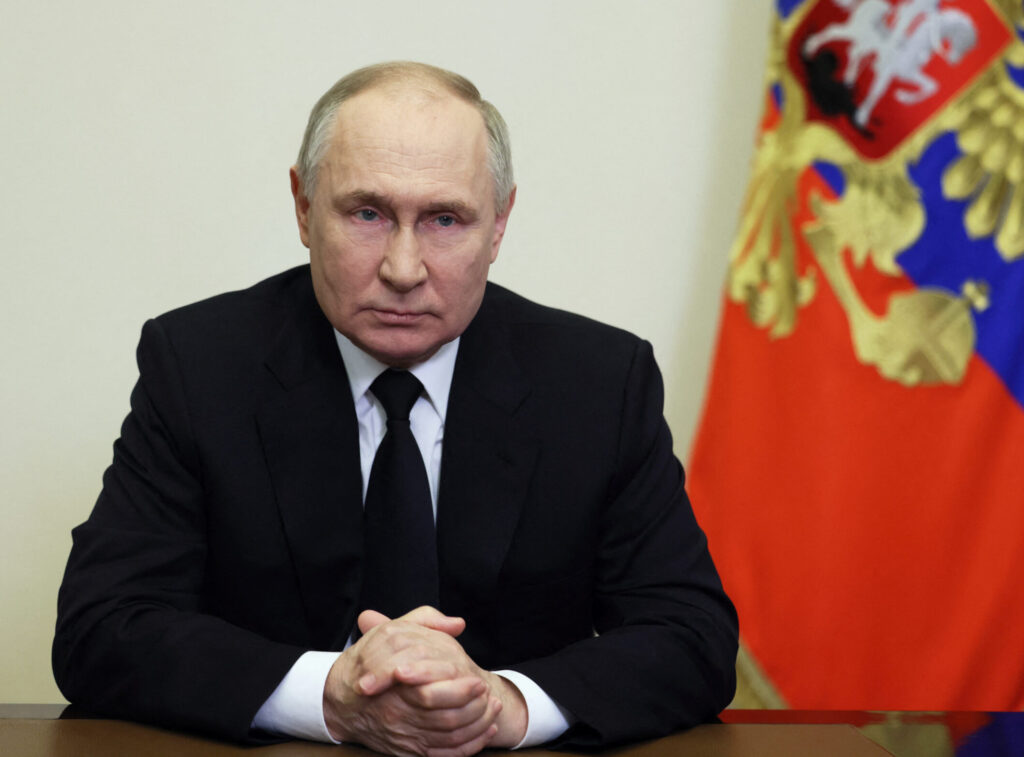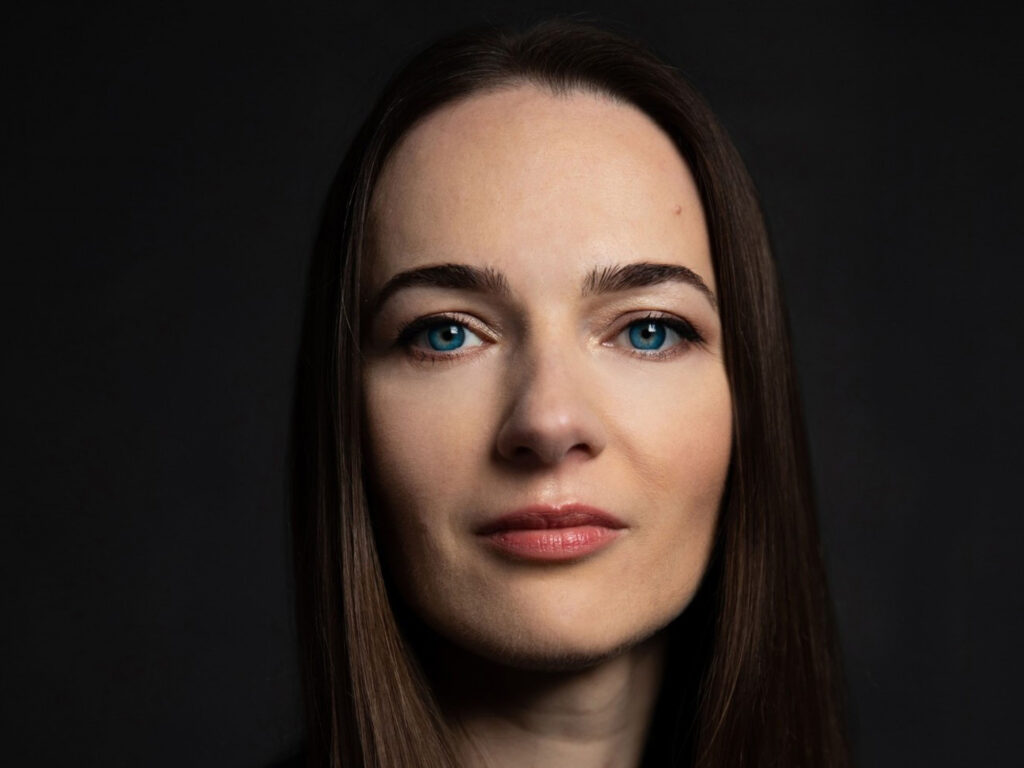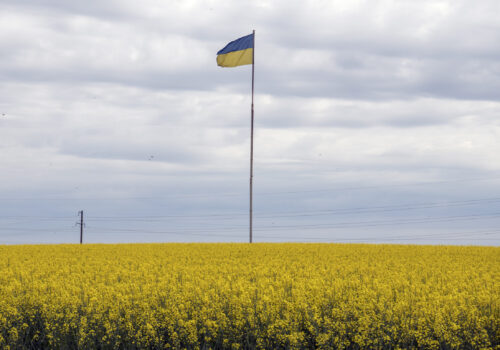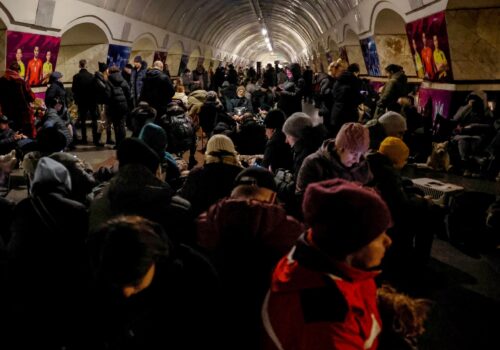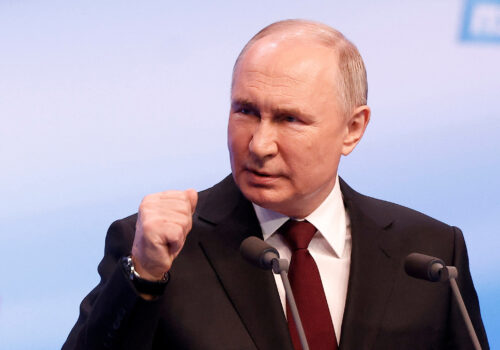Over the past week, representatives of the Islamic State have gone to considerable lengths to confirm they were behind the March 22 attack on a Moscow concert hall that left more than 140 people dead. In the immediate aftermath of the killings, the radical Islamist group issued a series of statements claiming responsibility. They then went even further, circulating visual proof including graphic bodycam video footage filmed by one of the assailants.
Despite overwhelming evidence pointing to Islamic State terrorists, Vladimir Putin seems intent on blaming Ukraine. While the Russian dictator has acknowledged the atrocity was carried out by Islamist militants, he has repeatedly indicated that Ukraine and the country’s Western partners are the real culprits.
The first clear sign that Putin would seek to implicate Ukraine came on the day after the attack. In an official address to the nation, Putin announced that four suspects had been caught while attempting to reach Ukraine, before accusing the Ukrainian authorities of “preparing a window” for them to cross the border.
This version of events made little sense, given the massive military presence along Russia’s wartime border with Ukraine and the intense security spotlight on the wider region. Putin’s far-fetched story of a Ukrainian escape plan has subsequently been further undermined by his closest ally, Belarusian dictator Alyaksandr Lukashenka, who has stated that the terror suspects initially attempted to flee across the border into Belarus and not Ukraine.
None of this has deterred Putin. On the contrary, the campaign to blame Ukraine has continued to gain momentum in the wake of the Moscow massacre. The Kremlin-controlled Russian state media has openly questioned the claims of responsibility made by Islamic State, and has directly accused Ukraine of being behind the terror attack.
Russian officials have followed suit, with Security Council Secretary Nikolai Patrushev stating that Ukraine was “of course” responsible for the attack and Russian Parliamentary Speaker Vyacheslav Volodin naming “the bloody regime of Ukraine” along with Washington and Brussels as the organizers of the atrocity. Meanwhile, Putin himself has doubled down on his earlier accusations, and has attempted to position the Moscow terrorist attack as part of a ten-year conflict between Russia and Ukraine.
Ukrainian officials have rejected Russia’s groundless accusations, suggesting instead that Putin is seeking to exploit the tragedy in order to provide further false justification for the invasion of Ukraine. “Do not let Putin and his henchmen dupe you,” commented Ukrainian Foreign Minister Dmytro Kuleba. “Their only goal is to motivate more Russians to die in their senseless and criminal war against Ukraine, as well as to instill even more hatred for other nations, not just Ukrainians, but the entire West.”
Stay updated
As the world watches the Russian invasion of Ukraine unfold, UkraineAlert delivers the best Atlantic Council expert insight and analysis on Ukraine twice a week directly to your inbox.
Russia has yet to produce any credible evidence supporting its claims of a Ukrainian role in the Moscow terror attack. Instead, the Kremlin appears content to rely on a combination of unfounded allegations, conspiracy theories, and innuendo. This is entirely in keeping with the cynical information strategy that has accompanied the Russian invasion of Ukraine, which has been based on deceit and distraction from the very beginning.
When Putin first launched the Russian invasion of Ukraine in February 2014, he did so with a lie so large and so transparent that in retrospect it is difficult to believe it actually happened. As his troops methodically seized control of Ukraine’s Crimean peninsula, the Kremlin dictator appeared before global audiences and repeatedly denied any Russian military involvement whatsoever. Instead, he insisted that the thousands of well-armed and disciplined troops involved in the operation were actually local militias.
This astonishing duplicity set the tone for the following eight years as Putin expanded the war by occupying much of eastern Ukraine’s Donbas region. Throughout this period, the Kremlin refused to acknowledge any direct role in hostilities and maintained an official policy of blanket denials, despite the fact that the presence of the Russian army in eastern Ukraine was the world’s worst kept secret. In addition to denying Russia’s obvious involvement, the Kremlin also waged an unprecedented information war to discredit and dehumanize Ukrainians.
For the past decade, the most consistent element of Russia’s anti-Ukrainian disinformation offensive has been the depiction of modern Ukraine as a “Nazi” state. This has been a Kremlin propaganda trope for many decades and was a prominent element of Soviet attempts to demonize Ukraine’s statehood ambitions during the Cold War. Putin has enthusiastically revived this tradition and has used it to justify his quest to extinguish Ukrainian independence. Few were surprised in February 2022 when he cited “de-Nazification” as the main goal of Russia’s full-scale invasion.
Putin’s “Nazi Ukraine” propaganda resonates well with Russian audiences drenched in the Kremlin’s World War II mythology, but has been significantly less effective internationally. It is not hard to see why. After all, Ukrainian President Volodymyr Zelenskyy is Jewish, while support for far-right political parties in Ukraine is lower than in most other European countries, with a coalition of Ukrainian nationalist parties receiving just 2% of the vote in the country’s most recent parliamentary election in 2019. Indeed, the entire “Nazi Ukraine” narrative is so ridiculous that even US media personality Tucker Carlson, who can usually be relied upon to echo Kremlin talking points, recently admitted it was “one of the dumbest things I’d ever heard.”
Eurasia Center events

The Kremlin’s attempts to blame the war on NATO expansion have proved far more persuasive among international audiences, but even this seemingly rational explanation has been undermined by Russia’s own recent actions. Putin has frequently stated that NATO enlargement since 1991 poses an intolerable security threat to Russia, but when neighboring Finland and nearby Sweden responded to the invasion of Ukraine by joining the alliance, he reacted with almost complete indifference and made no effort to obstruct the process.
The contrast between Putin’s evident lack of interest in NATO’s Nordic enlargement and his bellicose denunciations of Ukraine’s far flimsier ties to the alliance could hardly be starker. Far from threatening a military response, the Russian ruler actually downplayed the entire issue of Finnish and Swedish membership, and even withdrew the bulk of his troops from the border with Finland. Clearly, Putin understands perfectly well that NATO poses no security threat to Russia itself, and only objects to the alliance if it prevents Russia from bullying its neighbors.
In addition to imaginary NATO threats and phantom fascists, Putin has now added Islamist terrorism to the expanding list of absurd excuses for the invasion of Ukraine. This relentless flood of disinformation is designed to cloud perceptions and disguise the naked imperialism driving Russia’s war in Ukraine.
As the invasion has unfolded, Putin has become increasingly frank about his true motivations, especially when addressing domestic audiences. In summer 2022, he compared his invasion to the imperial conquests of eighteenth century Russian Czar Peter the Great. Months later, he announced the annexation of four partially occupied Ukrainian provinces while claiming they would now be part of Russia “forever.” With increasing frequency, Putin denies Ukraine’s right to exist and characterizes the war as a crusade to reclaim “historically Russian lands.”
Ukrainians are painfully aware of Russia’s genocidal goals and have long since grown used to the shameless disinformation being pushed by the Kremlin to justify the invasion of their country. In recent days, many Ukrainians have responded to allegations of their alleged involvement in the Moscow terror attack with typical gallows humor, quipping that according to Putin, “Ukraine is a Nazi Islamist state headed by a Jewish President.”
The Kremlin’s ludicrous conspiracy theories certainly deserve to be ridiculed, but the implications for millions of Ukrainians are no laughing matter. As Russian dissident Garry Kasparov noted this week, “mocking the absurdities of authoritarians is a worthy endeavor, as long as we never lose sight of how dictatorships like Russia use their laughable lies to justify oppression and murder.”
Peter Dickinson is editor of the Atlantic Council’s UkraineAlert service.
Further reading
The views expressed in UkraineAlert are solely those of the authors and do not necessarily reflect the views of the Atlantic Council, its staff, or its supporters.

The Eurasia Center’s mission is to enhance transatlantic cooperation in promoting stability, democratic values and prosperity in Eurasia, from Eastern Europe and Turkey in the West to the Caucasus, Russia and Central Asia in the East.
Follow us on social media
and support our work
Image: Russian President Vladimir Putin delivers a video address to the nation following a shooting attack at the Crocus City Hall concert venue, at an unidentified location in Russia. March 23, 2024. (Sputnik/Mikhail Metzel/Pool via REUTERS)
